Spotlighting some of the Golden Globe Best Actress nominees

As we look forward to our very own Jo Koy hosting the 81st Golden Globe Awards at the Beverly Hilton Hotel on January 7, we would like to spotlight some of the outstanding actresses who were nominated for Best Performance by a Female Actor in a Motion Picture – Drama, or in a Musical or Comedy.
We were able to talk to them either exclusively via Zoom, in a press conference or in a Q&A panel discussion. Below are some of our memorable conversations with Margot Robbie for "Barbie," Annette Bening for "NYAD," Emma Stone for "Poor Things," Carey Mulligan for "Maestro," Lily Gladstone for "Killers of the Flower Moon," and Alma Poysti for "Fallen Leaves."
Margot Robbie ("Barbie")
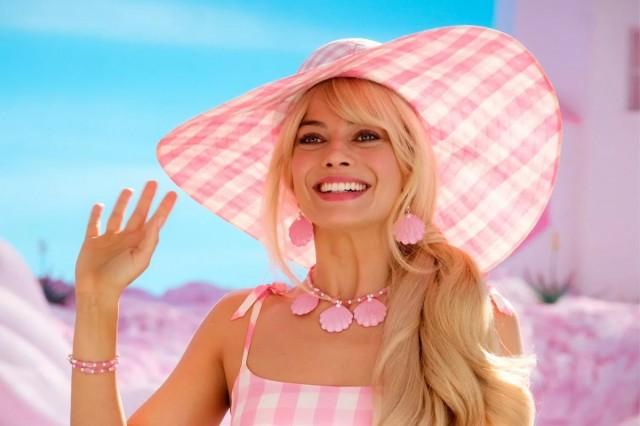 Contributed photo
Contributed photo
You were the one who optioned threats to Barbie. Why? What compelled you to take on such a massive icon with a complex history? Did you have any moment of hesitation and why ultimately did you go for it?
I had noticed something when we made "I, Tonya," something I hadn't accounted for, but realized after the movie came out, was that everyone went into that movie with a preconceived notion of their protagonist, and I hadn't thought of that. To see the effect, it had on an audience to go in with those preconceived notions made the viewing experience that much more interesting and engaging. You're just starting at a place, you're just starting with I hate this person, I remember where I was when this happened. So, it struck me, it struck us, that that could be the case for Barbie, but on a global level.
In America, it's Tonya Harding, but everyone in the world knows Barbie. So, you already have an audience coming to something with feelings, very strong feelings, and nostalgic feelings. Everyone has a Barbie memory, whether it's remembering that their sister had a Barbie, or remembering that they love their Barbie, or remembering that they hate Barbie, or remembering that a month ago they stood in the toy aisle and decided, no, I will not buy a Barbie for my daughter.
Whatever it is, you're starting at that place with an audience. And from there, you build on that, and you can take on this whole journey that's just so much richer and more interesting. It is also extremely terrifying. It was terrifying and I don't seem to really want to do anything unless it scares the shit out of me.
It seems like right from the beginning for you it was about getting to change people's perceptions or to change the story. Why for you was it Greta Gerwig (as director)?
As scared as I was of it, what outweighed the fear was just the absolute belief that we could do something so amazing. I thought if I could just find someone who is bubbling with as much blind optimism about how they approach movies, as I am when I approach movies. I know who that person is, because I've met that person. That person is Greta Gerwig, and I think in a parallel universe, Greta and I would be evangelists or something, because when we love something, we're like, I know it's crazy, but believe me!
You have to, like, this is going to be it! It's going to be amazing, and you just have to trust us because I swear this is going to work. You cannot pull off a movie like "Barbie" if you don't believe that you can pull off a movie like "Barbie" like this. And the only person who has that absolutely insane amount of belief is Greta.
It disproves this idea that movies about women are for women audiences. And that's something you as a producer have proven multiple times.
That was probably one of the biggest battles, convincing people that this wasn't a two-quadrant movie. This had a price tag attached to it that needed it to be a four-quadrant movie. We had to have men come see this for the math to work out. It doesn't matter how much you can say, trust us, trust us, trust us. People are scared to take that leap.
We're so grateful that obviously, Mattel trusted us, and Warner's wrote the checks and trusted us as well. But that was the scariest, that was the continuous conversation that even right up until the movie's made and we're marketing it, it's still like, a guy's going to come see this, a dude's going to come see this, and how do we shift things so that they're...
It's so frustrating, because I've been watching dude movies my whole life. I love dude movies. I connect with dude characters all the time. I don't see why it can't happen in reverse. I'm just so happy because a part of me that's scared that it won't work out, it's like, if it doesn't work out, and if dudes don't show up for this movie, everyone's going to be, see I told you, that's why female movies can't get that price tag.
I was like, no, I just want this to work so that everyone after this, pitching their movie with a female lead, and I want them to get greenlit. I want them to be like, yeah, look what that did. And "Wonder Woman" did it, but everyone says, yeah, but that was a superhero film. And so, it's like somehow got this caveat to it, and you're like, no, it can work. So yeah, that was a huge part of this four-quadrant nature, nothing possible at all.
Annette Bening ("NYAD")
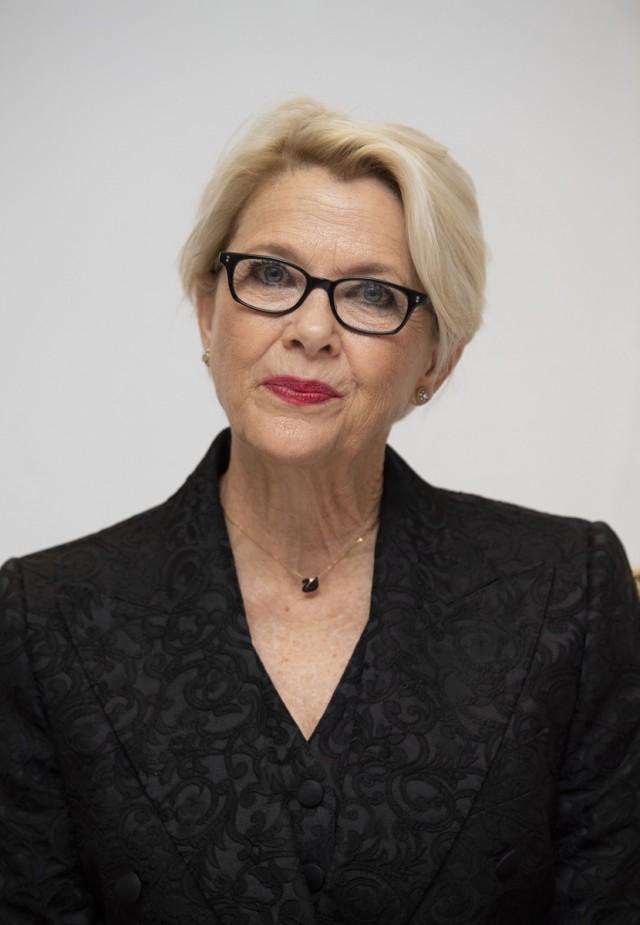 Photo: Janet Susan Nepales
Photo: Janet Susan Nepales
This is a very inspirational movie for women. What did you learn from portraying your character?
It's the metaphor that Diana draws in her book, Diana Nyad, who did this crazy long swim from Cuba to Florida, which is what our movie's about. So, it's all about how many times she kept failing. And the book is "Find a Way."
I love that metaphor for life, that we all have something, or maybe several things that we want to do. It doesn't necessarily have to be like an athletic feat. It can be just finding peace at home, finding a way, if you have a serious illness, to find a way to still enjoy life and enjoy whatever it is that's in front of you. That she is a teacher of finding a way to persevere, but not in a corny way, not in a shallow way. It becomes a spiritual endeavor. This, for her, was that.
Swimming for her is a spiritual experience in a way. Although of course terribly physical, terribly practical. She has a log at the end of the book of the amount of training she did. Even her training is crazy. Ten hours in the pool, then two days later, 15 hours in the pool, then six. Oh, only six. It's like, what?! I don't know. She has this energy and this sense of her life having meaning. That is something she struggles with. So, it's not something that's a gift that's just zapped on her, right? No, it was something that she had to really fight for. I respect that about her, that she cared enough to say, no, it's important, I'm going to stick with this thing.
What did you think of Jodie Foster jumping into the water when it didn't happen in real life?
Jodie did not like to have to jump in the water, but it was her idea. And thank God she had the idea. It's a genius idea. When I saw it in the script, I knew it was her idea. When I read it, I thought, ah, yes! That's what happens when you get to work with someone like Jodie, because she has all this experience. She's a director, she's a writer, she does all this other stuff. So, when she's looking at a project, she's not just thinking about, oh yeah, Bonnie (Stoll) speaks at a certain pace, or Bonnie has these certain eccentricities. She's also looking at the whole picture, and that's the fun of it.
Emma Stone ("Poor Things")
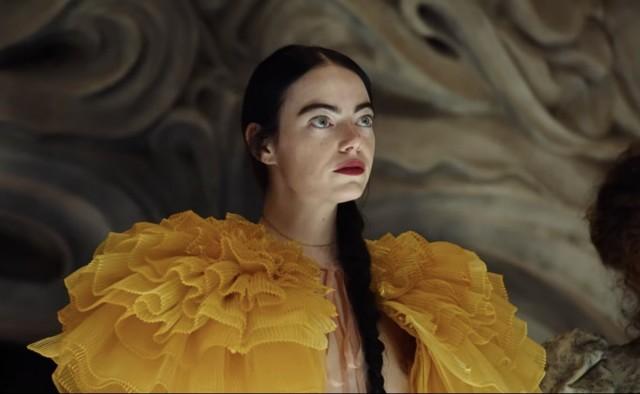 Contributed photo
Contributed photo
What made you want to not only star in the movie but also sign on as a producer?
After we made "The Favourite," we made that the beginning of 2017, Yorgos (Lanthimos) and I had dinner, and I think I was just asking him what he was thinking about doing next there were multiple things that he was thinking about and one of them was "Poor Things," and he told me the premise of the book and I immediately was like, "that's great, like when do we start?" He wasn't pitching it to me... But we had met a couple of years before "The Favourite," and we had gotten to know each other a bit, and then working together was so wonderful, and I knew I wanted to get the chance to work with him again if I could. Then the combination of this story and this character and him was beyond exciting to me.
So, we talked about it for a while before I even read a draft of the script, like a couple of years. In that process, he was telling me about how it was coming together, I read it, and then we were talking about all the different departments and what it would look like and what it would feel like, the cast, all of that.
He asked me to be a producer at a certain point. From then we would discuss every facet and it was amazing. It would have been this way either way because of our relationship, but just in title alone. It's really nice to have that kind of relationship and the ability to express yourself in many circumstances. But again, even if I hadn't been a producer, it would have felt like that because of the way we discuss everything.
What would you say was a unique aspect of this filmmaking process that you become precious about in hindsight?
Bella Baxter is my favorite character ever. Like, hands down, by a mile. She's incredible. I know that I probably will never get to even touch a character like Bella ever again, which is heartbreaking to me, but also incredible because to be so lucky to get to play a character like her. And so that is precious to me. Bella is precious to me.
Beyond that, the dynamic that we felt protective of. Yorgos and I made a short film in between "The Favourite" and "Poor Things" at the beginning of 2020, right before the pandemic. That was a very small crew. We were on an island in Greece for two weeks, and it was very pared down and straightforward. We could just experiment and do what we wanted to do, and that energy felt good for both of us.
You can speak to this, but the films that he made in Greece at the beginning were very made by everyone. Everyone was collaborating, and it was small, and they were all participating, and it felt more like that. So that energy is very important to both of us, that no matter how big it is, and this film is really big in scale, all the sets and a large crew and many actors, whereas our short film only had two actors, I think that that energy hopefully remains. It felt very intimate, very trusting and a safe place to do all of these things. Very protected in that way, but also small and everyone's doing the same thing. So, I guess that. Also shooting on film, woo!
Carey Mulligan ("Maestro")
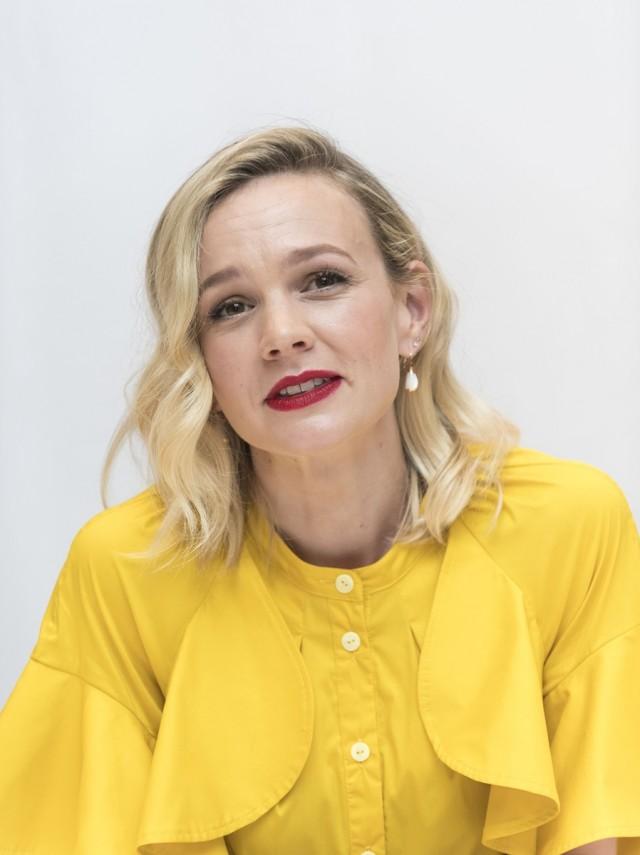 Photo: Janet Susan Nepales
Photo: Janet Susan Nepales
What were the biggest challenges you faced in capturing the essence of Felicia while staying true to her historical persona?
I don't know if there was a specific. Obviously, dialect is always really important to get down. Like, if you can feel like it's something you don't even need to think about, then you've given yourself a really good place to start. I certainly felt like by the time we got to set, that was not something we even needed to worry about. That was such a relief. Because again, you want to capture the essence of who they are, but also, Lenny (Bernstein) particularly is an incredibly well-known famous person, so the work needs to go in for that.
But for me, I felt I had a little bit more license just because Felicia wasn't such a well-known character, but her voice is just so melodic and beautiful. I wanted it to be specifically her, and I wanted to get that right for myself, and because the way she spoke was so much of who she was. So, I think her voice, her accent, and feeling like I could just sit and run those pages and those scenes over and over with Bradley (Cooper) and feel completely comfortable before even a camera was rolling. That felt like the biggest hurdle.
Some members of the Bernstein family were at the Venice Film Festival premiere. While you were filming, what interactions did you have with them? And what was it like to film in their actual family home?
That was the Fairfield home. It was the run-up to filming that we had the most - there were very few people on set, it was just such an intimate environment. So, for the duration of filming, we had less contact.
But for both of us, particularly for Bradley and the writing and coming together with the whole project, there was a huge amount of contact and information, and they were so generous to us. I just felt a huge genuine hug from all of them. That was my experience with them from the moment I met them in Philadelphia.
Bradley and I went and narrated "Candide" in 2019. That was the first time I met them. They were just so warm, and they have so much affection for this project. Obviously, there's a huge amount of love for their parents and so, I was so aware of being someone who was portraying someone who was so vital and so huge in their lives. But they were just nothing but welcoming, sweet and real sense of family. That carried through the whole way through. Getting to see them from a distance on the internet, Venice, dancing along to the Candide over tour, all the way to seeing them in London when they came for LFF (London Film Festival) and then seeing them at the various openings and things. It just always feels like just the sweetest time.
Lily Gladstone ("Killers of the Flower Moon")
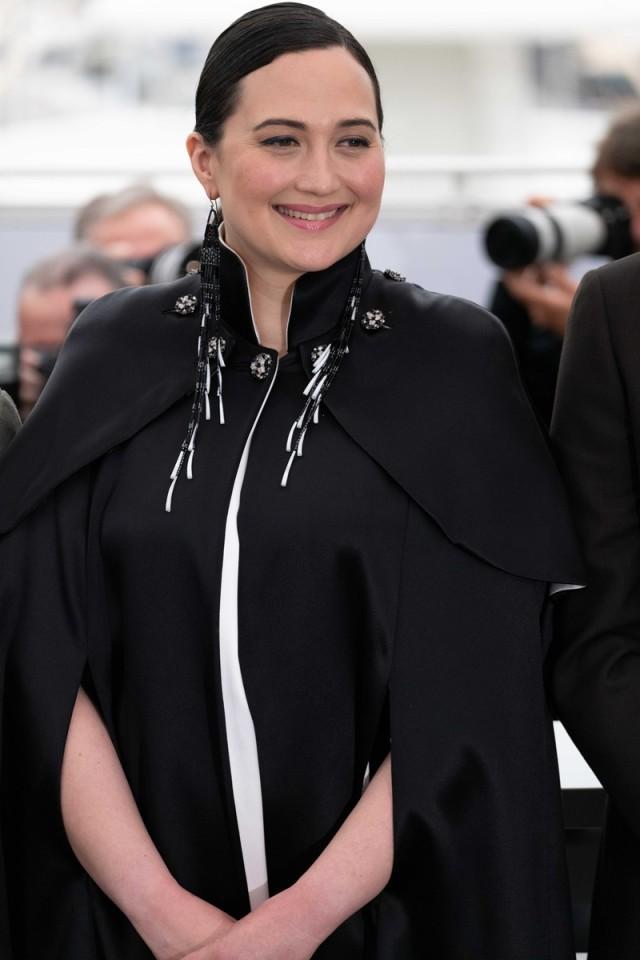 Photo: Earl Gibson III
Photo: Earl Gibson III
The filmmakers worked hand in hand with the Osage Nation, striving for authenticity in the film. Can you talk about the importance of this collaboration and the responsibility in doing it right?
It was everything. I'm sad that that hasn't been the precedent this whole time. I feel that, as an actor walking into this and being Native American and having played Native roles extensively, I often play roles from tribal nations that I'm not from, that each time it's a cultural, not a culture shock, but definitely you go through an acculturation period.
Some other films I've done, not this one, people take for granted that there are 574 different federally recognized nations in the United States. We're not a monolith and we're not homogenized. I speak some Blackfeet language from where I grew up. I grew up on my father's reservation, one of his nations. But Osage is a foreign language to me. A lot assume that Native actors know how to speak the Native American language, but really, I was coming in learning everything I could and being as respectful as I could, like I would expect an actress to come into Blackfeet country and tell a story about one of our ancestors.
What was wonderful was that production, for such a long time before we ever got there, was building these relationships with the community. So, by the time I arrived, there were already a lot of people who were willing to meet with both of us, to talk with us about both of our characters, to work with me on how an Osage woman at the time would have conducted herself.
Historically, there was Mollie's psyche at that point. We never mentioned this in the script or in the story, but Mollie had been one of the kids who had gone to boarding school. That in itself is a traumatic experience. But she probably was pretty successful at it, knew how to be in the community, but also knew how to be around white men. So, there was a lot.
It was a different culture, it was a different time, it was a different period, but the most important element of all of it, for me, was that I was never alone on set. If I was uncertain about a choice I was making, there was not just one, but several Osage people in every level of production close at hand. I knew that every time I spoke this language Janice and Chris were listening on the other end. Janice's father created the Osage dictionary that is used now in language revitalization efforts and she's very particular about pronunciation, grammar, all of it. It was a great comfort as an actress and it's also just essential because drawing out the culture in such a vivid way sets the scene in a way.
This isn't like you're going to an art market where you're appraising the authenticity of this rug made by this native artisan. You had to have that world feel that way to have these authentic human beings that the audience will feel for, will love, and will connect with. We had to have the family dynamics, the love between the sisters because when you feel that love for these characters, you feel that loss.
Without Marty (Scorsese) accepting that first invite that Gray Horse sent him when they knew production was coming in. Gray Horse invited Marty out, they said we're going to put food on the table and talk to you about some of the concerns we have. And Marty, because he is the legend that he is, because he's the incredible human being that he is, did the right thing and went. Other people probably would have stayed far away from that or would have never accepted that invitation.
But it was crucial, it made the film what it is. I do hope that for all filmmakers who are working with community and who are working with stories and histories like this that are so relevant today still, that they're as careful and that they're as community-oriented in doing so, because it's only going to strengthen the work that you do.
Alma Poysti ("Fallen Leaves")
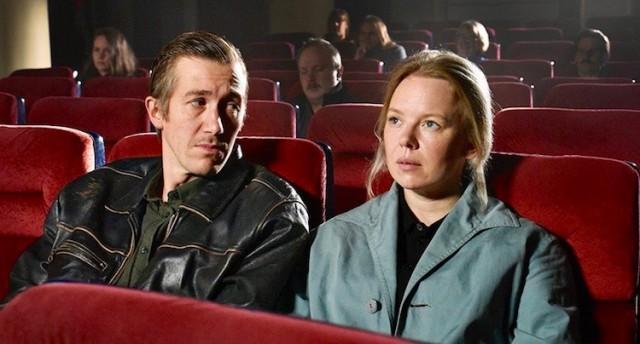 Contributed photo
Contributed photo
It's such a touching film. Everyone feels exactly all of the love that was put into it, the poignancy, the loneliness and the sadness. This is your first time working with Aki Kaurismäki and he's such a legend in the Finnish film industry, especially he and his brother, Mika Kaurismäki. What was your reaction to finding out you were going to audition for this? How did you get the part? Can you tell us a little bit about connecting with Aki and getting the role?
Getting a phone call one sunny day saying that Aki Kaurismäki wants to meet you for lunch is something very unexpected, surprising and wonderful. That's what happened. We were invited for lunch, and we arrived at the lunch and there was this legend that I have been following my whole life.
We painted on his hands, and we talked for quite a while about anything but the movie. We talked about the forest, politics and dogs. Towards the end of the lunch, he said that he had this idea for a film, and he asked if we would like to join the project.
It's all been quite surreal and wonderful. Aki said about six years ago that he had made his last movie, so no one expected him to even do a new one. He even surprised himself, but he was very inspired. About a year later, we got the script, and that was such a pearl.
The vision was so clear. Aki Kaurismäki is a man of few words, so it was the shortest script I've ever read. But it was absolutely brilliant, and it was all there, and it's such a touching story and so funny. The man has a brilliant unique sense of humor, so we were laughing quite a lot reading it.
You realize also that this is so exact and so clear that you just have to somehow learn to read it very carefully and all the clues to the character and the situations are there. There is nothing that I need to add or improve as an actor. I just bring the heart and life to the role, but there is nothing you need to somehow compensate for.
There's a rhythm to the dialogue, the radio, the silences, the glances, the movements, and how the light rests on your character's faces. Can you talk about tapping into that rhythm and how it may have reshaped your process for understanding a character, how they think and interact with others on screen?
What a beautiful question. The way Aki works is that he doesn't want us to rehearse beforehand. So, we come as pure as possible to the set. Then we built the frames for hours together with light and props and the camera to get everything right. Because he wants to shoot the film in one take. And that goes for everyone. So, the concentration and the feeling of an ensemble, that this is something we have to do, make it right the first time, it goes for everybody, and you need to find that rhythm.
It's certainly true that it goes for the light as well, as for everything. The rehearsals before the shot they're minimalistic. We just went through the rhythm but saved the life of the scene for the take and for the camera. He directed us like, you walk there, you look there, then you say that. But I guess everyone was listening very carefully to this phase of the work.
It's very sensitive and you can feel the care that goes into all the details from everyone on the team. They've been working together so long, a lot of them, that they have this special language somehow. They don't talk that much; they whistle a little or blink an eye and a lamp will shift and something there. It's a very quiet set, but it's full of somehow this wonderful concentration.
Is it true Chaplin, the dog, is Aki Kaurismäki's dog?
That's right.
What's her real name? And what was it like working with her?
Her name is Alma. She's a street dog from Portugal that I got to see a few years ago. And this is her debut as an actress. She blew us all away. She's massively talented. She's got such a sense of rhythm. She made these strong independent choices that amazed us. Maybe it helps if you're the director's dog, you are allowed to take a certain artistic freedom. But she was really amazing. I have to say the focus and the discipline of our dear colleague, Alma, I deeply respect her.
The 81st annual Golden Globe Awards will air live on CBS and stream on Paramount+ on Sunday, Jan. 7, 2024, at 8 pm ET/5 pm PT (live on demand for Paramount+ with Showtime subscribers, or on demand for Paramount+ Essential subscribers the day after the special airs).
—MGP, GMA Integrated News



